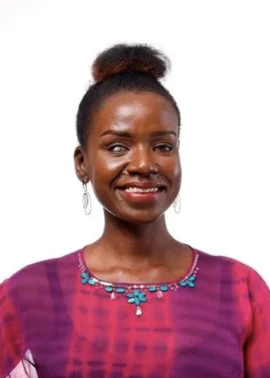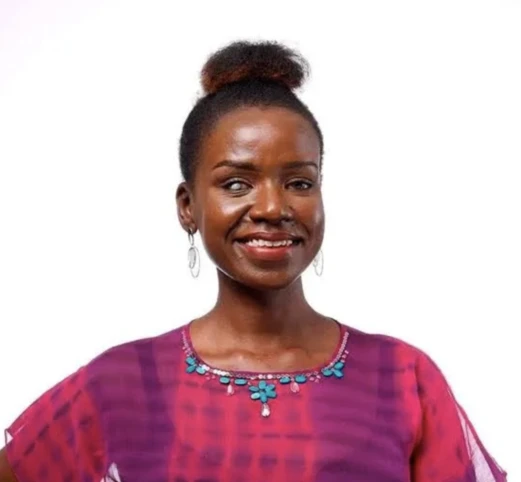Being a disabled woman in Africa
Excerpt from a speech by Crystal Asige, Senator Representing People with Disabilities Kenya, Founder MapAbility, One Young World Ambassador –at One Young World Summit Manchester, 2022.
"Studies show that there is no group that is left further behind than Black women and girls with disabilities in Africa because they carry multiple burdens of discrimination. They are:
4 times more likely to suffer from gender-based violence
3 times more likely to lack health care
3 times more likely to be illiterate
2 times less likely to be employed, and
2 times less likely to use the internet.
Black women and girls with disabilities in Africa are disproportionately uneducated, unemployed, exploited, impoverished and abused. Advocacy isn't just the work that I do. It's the life that I live because this is me and these have been my odds.
I've lost job opportunities because I can't see. I have enrolled for educational courses and yes I got in, however, halfway through my education it was discontinued by the institution because they could not accommodate my disability anymore. I have been swindled of a lot of money because I can't see. Attempted assault because I can't see.
As a young teenager my eyesight began to steadily decline from a degenerative condition called glaucoma through which I acquired my disability.
I've been able to live on two sides of the spectrum. One without a disability and now one with and it's taught me a lot of things of the in-between. One of them is to continue to encourage myself because yes, I have glaucoma. But I don't believe glaucoma has me. I had to start my life over again. I had to accept, adapt and unlearn and in doing so I realized that this is not a disability.
I also learned that it's not the white cane or the wheelchair. It's not the hearing aid or the prosthetic that holds us back. It's the environment around us that does.
Why environment matters
Buildings, streets, transport services are made inaccessible to people with disabilities every day, which directly impacts our odds. I always say to people:
If I cannot walk into a business park comfortably, then I won't have a job.
If I can't access a university campus, I wouldn't have an education.
If I can't access the local bus stop, I won't be able to travel.
If I can't access a clinic or hospital, I won't get medication or medical care.
The inaccessible environment began to show me that it's more than just our disabilities. It's the barriers that make us disabled. Today if you were to go to a new country without knowing the language you would be disabled if there isn’t signage that is accessible to you, right? If you go to the beach and you can't swim you're technically disabled, right?
So what I discovered through my journey is that it's always the environment around us. This allowed me to have vision for once, I only needed a way for other people to see it.
So my love for data took me to the conclusion or the idea that if you don't count it, it doesn't count. So, I thought: how can I use data and this issue of disability and the environment and put them together?
Finding a Solution
I set up a program called Ability with support from the Open Institute in Kenya. And the first phase of Ability was awareness, creating content around inaccessibility and how that directly impacts the dignity, the independence, the safety, the confidence, the equity and inclusion of people with disabilities in Africa.
Phase two of Ability was to train a diverse group of young people in how to collect accessibility data, which I was now certified in at the time. We were able to train them and go out and collect data on over 600 buildings and streets in Nairobi. This was tangible data collected by volunteers. That means you and I or any ordinary citizens were able to put that data onto an open source map, which we called MapAbility.
MapAbility now tells the user how accessible a building is before that person wants to go for a job interview, to a medical appointment, a training course or maybe to go and vote at the local elections in that building. It also tells a user how accessible a street is before planning their journey across town or going on a hot Tinder date.
Women in Kenya own the majority of SMEs. The research shows that three out of four women in Kenya have to use public transport to work every single day. Out of those women, a fifth are women with disabilities, but the accessibility is really poor.
So how do they interact with the environment?
How do they progress their lives?
How do they take care of their families and themselves?
MapAbility for the last three years has been using the accessibility data that we've been collecting to advocate for disability rights for women. It's been used to educate the non-disabled. It's been used to influence and champion inclusivity and also it has been used to influence policy for equitable mobility in Kenya.
Most recently we had a really positive achievement through the work that we did informing the past elections in August in Kenya. We used MapAbility to inform how accessible the different polling stations across Kenya were for people with disabilities. It was used to improve election attendance by making polling stations more inclusive in Kenya."
Where I want to take MapAbility next
I want to take MapAbility further into Africa to collect Africa wide data because in Africa, the statistics show that there are 80 million people with disabilities and out of those 80 million, 80% always use public transport or must walk every single day. But the accessible environment isn't there.
We want to identify inclusion champions across Africa. They could be road engineers, researchers, urban planners, transport planners, designers, teachers, students, anyone. We get them to Nairobi, provide them with accessibility or training and then send them back to their home country so that they can mobilize more volunteers like you.
Our goal is to together, continue to audit the different home cities that volunteers are from and then take all of this Africa-wide data and create and design an accessibility app. Then we can have accessibility data on Dar Es Salaam, on Dakar, on Pretoria, Kinshasa, Tunisia and more.
So when women with disabilities want to go out and absolutely crush the world, look for opportunities and chase their dreams, we can do so without feeling ‘Hey the environment isn't built for somebody like me.’
Watch Crystal Asige deliver her speech
Author

